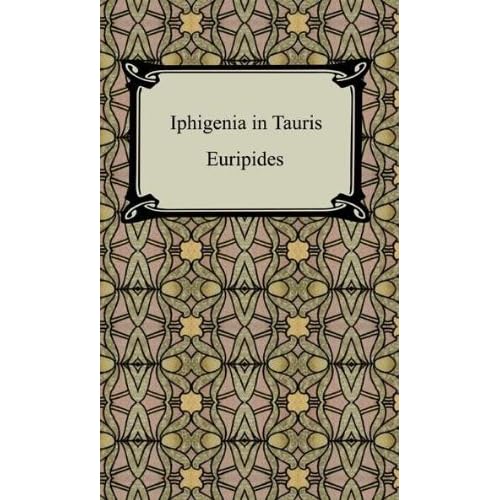Iphigenia in Tauris [with Biographical Introduction]
Category: Kindle Store,Kindle eBooks,Literature & Fiction
Iphigenia in Tauris [with Biographical Introduction] Details
"The Iphigenia in Tauris is not in the modern sense a tragedy; it is a romantic play, beginning in a tragic atmosphere and moving through perils and escapes to a happy end. To the archaeologist the cause of this lies in the ritual on which the play is based. All Greek tragedies that we know have as their nucleus something which the Greeks called an Aition-a cause or origin. They all explain some ritual or observance or commemorate some great event." So begins the preface to "Iphigenia in Tauris" by Euripides as translated and prefaced by Gilbert Murray.

Reviews
Iphigeneia in Tauris feels like a one-act play, one I was able to read in a couple of hours. It tells the story of Iphigeneia, her brother, Orestes, and what happened to them after their parents, Agamemnon and Clytemnestra, are murdered. The siblings are reunited in the end, but only after suffering through ordeals.What stood out for me were two instances of friendship and sacrifice. In the first instance, Orestes chooses to save his friend, Pylades, whose life can be spared by delivering a message for Iphigeneia. Instead, Pylades declines and says he couldn't endure the shame of living while his friend died. It seems like Pylades was more concerned about what society would think, but underlying his decision is the deep love he has for his friend. In turn, Orestes responds by pleading that he couldn't bear to have his friend die. What a rare example of friendship and how far you're willing to go. In the second instance, Iphigeneia asks the Chorus (her slave attendants), to assist in their escape and stay behind to cover for them. The Chorus assents, even though they'll certainly be punished. What's more, they'll always be slaves living in misery.Euripides ends the play with his usual deus ex machina in the form of Athena. It's a false happy ending since, without her timely intervention, the play would've ended badly for the trio and the Chorus. Overall, I thought the work, translated by Richard Lattimore, was just okay due to its being rather short and on the thin side.


